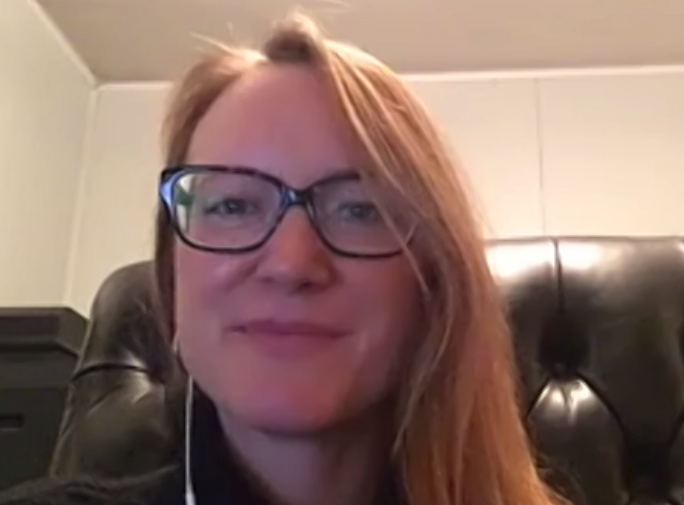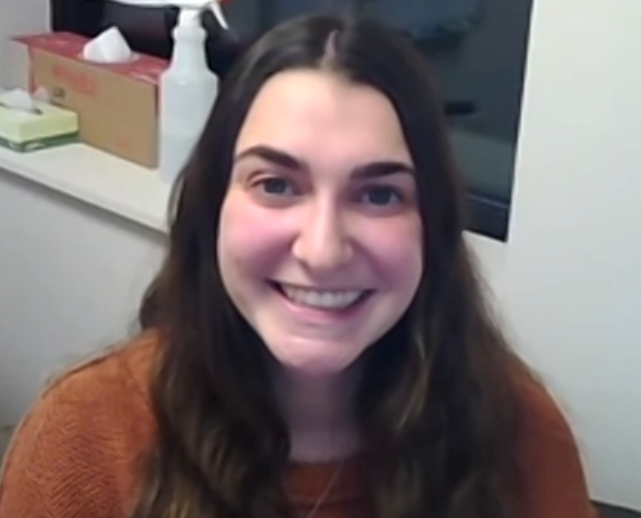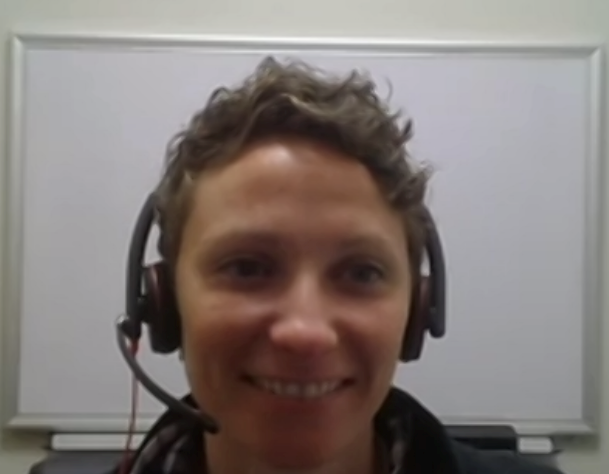Speech Therapy Helped Aphasia Client
Jenn Derry suffered a stroke in 2016 and has been receiving therapy at the Speech-Language Institute (SLI) of Salus University for the past five years. She shared her story of her stroke and therapy services in a podcast along with her speech-language pathologist and master’s student.

Derry recalled how she woke up sick on May 9, 2016, the day after Mother’s Day. She dropped her 14-month-old son off to daycare but then threw up in the parking lot.
“I kept throwing up, so I went home instead of going [to work] and I usually, I [am] always at work. I never miss anything. I tried to go home and go to sleep. But, my husband kept calling me and making [sure] that I was okay. After a few hours, he came home to find me unable to speak properly, and I was still throwing up violently. He rushed me to the hospital and I don't remember much more after that,” she said.
She remembers hearing a helicopter and someone taking off her wedding ring. “I remember I was trying to fight it, fight them to take it off. But, I don't know why I had a stroke and I don't know why I have aphasia,” Derry said.
When in the hospital she was diagnosed with Crohn’s disease, after having been misdiagnosed for 30 years with colitis. “So, they think Crohn's may have caused a clot and because of [that] my stroke,” she said.
Being in therapy at the Speech-Language Institute for the past five years, she loves everyone there from the receptionist to the students.
“Everyone is wonderful and I'm so very lucky to have them. I lost my ability [to] communicate. I couldn't read, write, speak, or even comprehend the numbers from one to 10 or letters A to Z. Every semester, the clinician and student helped me to improve my language skills and strengthen my brain through neuroplasticity. I also like Salus because of the no cost. My insurance does not cover therapy, which I think is pretty upsetting,” she said.

According to Derry, the student and clinician she works with - Hannah and Annie - are helping her identify and describe an item. “I'm practicing and still learning strengths or strategies to help with my speech,” she said. “I've worked on opposites, synonyms, yes or no questions, prefaces, prepositions, articles, and thinking of words and saying them in general. They help me with reading, writing, speaking, and comprehension.” Other strategies are reading and listening to a book on Audible, watching TV with subtitles and playing Words with Friends and other games.
Hannah Perloff, SLP ’23 is a first-year student who has been working with Jenn, along with Anne Ruckdeschel, MA, CCC-SLP.
“I had never worked with an adult client before, and I'd never worked with a client with aphasia before. I've learned a lot more about aphasia, in my first semester, which has correlated to our practice in the clinic, which has been awesome. I've also learned more about aphasia every week, working with Jenn and with Annie, my supervisor,” said Perloff.
Perloff went on to describe Derry as a “great client” who’s “always engaged and motivated to not only work hard and make progress with many aspects of her speech, but she also bears with me as I'm learning to become an SLP.” The experience has really exceeded all of Perloff’s expectations for working in the clinic her first semester.
Ruckdeschel has been at Salus since 2016, and has spent most of her career working with adults with brain injuries in a medical rehab setting.

“I just love the job and love getting to work with Hannah and Jenn who are both hilarious. And, I just get to giggle in the background for a lot of the session, which is awesome,” she said.
At SLI, clients are matched with speech pathologists that have experience in their specific area.
“I think Hannah kind of touched on it beautifully, which is to say a lot of us learn, most of us learn by doing at the heart of it, right? So, when students can come in and start doing the work they're going to end up doing, right away, I think things in the classrooms start to click a lot faster and it just makes the learning process a little bit more robust.” Ruckdeschel said. The lessons are more lasting in terms of what students can remember because they're practically applying it.
“A lot of times what's so great about our job is you don't have to choose one path. You can dibble and dabble, here and there, and get to work in a bunch of settings that are really fun and challenging and inspiring. Both of those things are really beneficial to graduate students,” said Ruckdeschel.